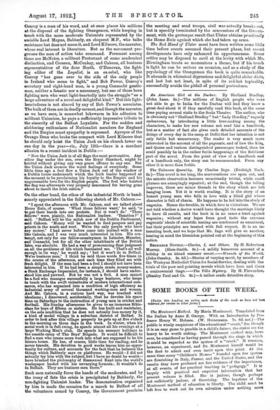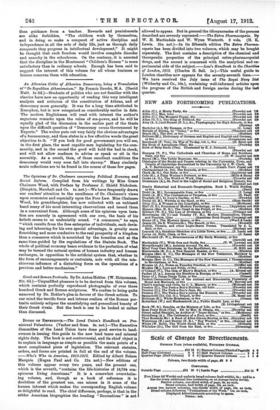SOME BOOKS OF THE WEEK.
[Under this heading we notice such Books of the 'week as hate not bens marred for review in other formal The Montessori Method. By Maria Montessori. Translated from the Italian by Anne E. George. With an Introduction by Pro-. fessor Henry W. Holmes. (W. Heinemann. 7s. 6d. net.)—The public is wisely suspicious of the educational "crank," for, though it is an easy game to gamble in a child's future, the stakes are too heavy to be worth risking. The Montessori method may, how- ever, be considered as having passed through the stage in which it could be regarded as the system of a "crank." It remains, however, an experiment, and Dr. Montessori herself would be the first to admit and even insist upon this point. At the same time many "Children's Houses " founded upon her system are flourishing in Italy, France, and the United States, and the results they have produced are fair evidence of the importance, at all events, of her practical teaching in "pedagogy." It is largely with practical and empirical information that her present volume is filled. Sho is jealous, though perhaps not sufficiently jealous, of theorizing. The keystone of the Montessori method of education is liberty. The child must be left free to work out its own salvation under nothing more than guidance from a teacher. Rewards and punishments are alike forbidden. "The children work by themselves, and in doing so make a conquest of active discipline and independence in all the acts of daily life, just as through daily conquests they progress in intellectual development." It might be thought that such freedom would involve complete disorder and anarchy in the schoolroom. On the contrary, it is asserted that the discipline in the Montessori " Children's Houses " is more satisfactory than in ordinary schools. Enough has been said to suggest the interest of this volume for all whose business or leisure concerns them with education.







































 Previous page
Previous page